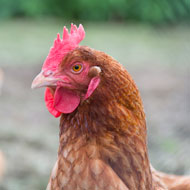
Defra releases its latest outbreak assessment
Wild birds infected with the avian influenza strain H5N8 may already be present in the UK, Defra has said.
The UK's risk level for an incursion of infected wild birds has been increased to 'high', while the risk to poultry on individual premises is now rated at 'low to medium' depending on biosecurity levels and the geographical region.
Defra's latest outbreak assessment confirms the disease is continuing to cause outbreaks across Europe. France, Netherlands, Germany, Poland and Hungary are reporting more outbreaks on commercial premises, while Greece has now reported a case in wild birds.
Further outbreaks have been reported in Ukraine and H5N8 has also now been detected in Nigeria.
The assessment report states: 'Given the level of geographic spread across Europe and Africa, we should expect this virus to remain an issue and pose a continuing risk to our poultry sector for a considerable time.'
An outbreak of H5N8 was confirmed on a Lincolnshire farm on 16 December. Investigations into the source of the disease and potential spread to other kept birds is ongoing. All surviving birds at the farm were culled and surveillance and protection zones are in place.
A prevention zone is in place in England, Scotland and Wales, requiring owners to house poultry and captive birds or otherwise prevent them coming into contact with wild birds. This will remain in place until 6 January 2017, when it will come under review. Gatherings of certain at-risk bird species are also temporarily suspended.
For further information see: https://www.gov.uk/government/uploads/system/uploads/attachment_data/file/579461/hpai-europe-update6.pdf



 The BSAVA has opened submissions for the BSAVA Clinical Research Abstracts 2026.
The BSAVA has opened submissions for the BSAVA Clinical Research Abstracts 2026.